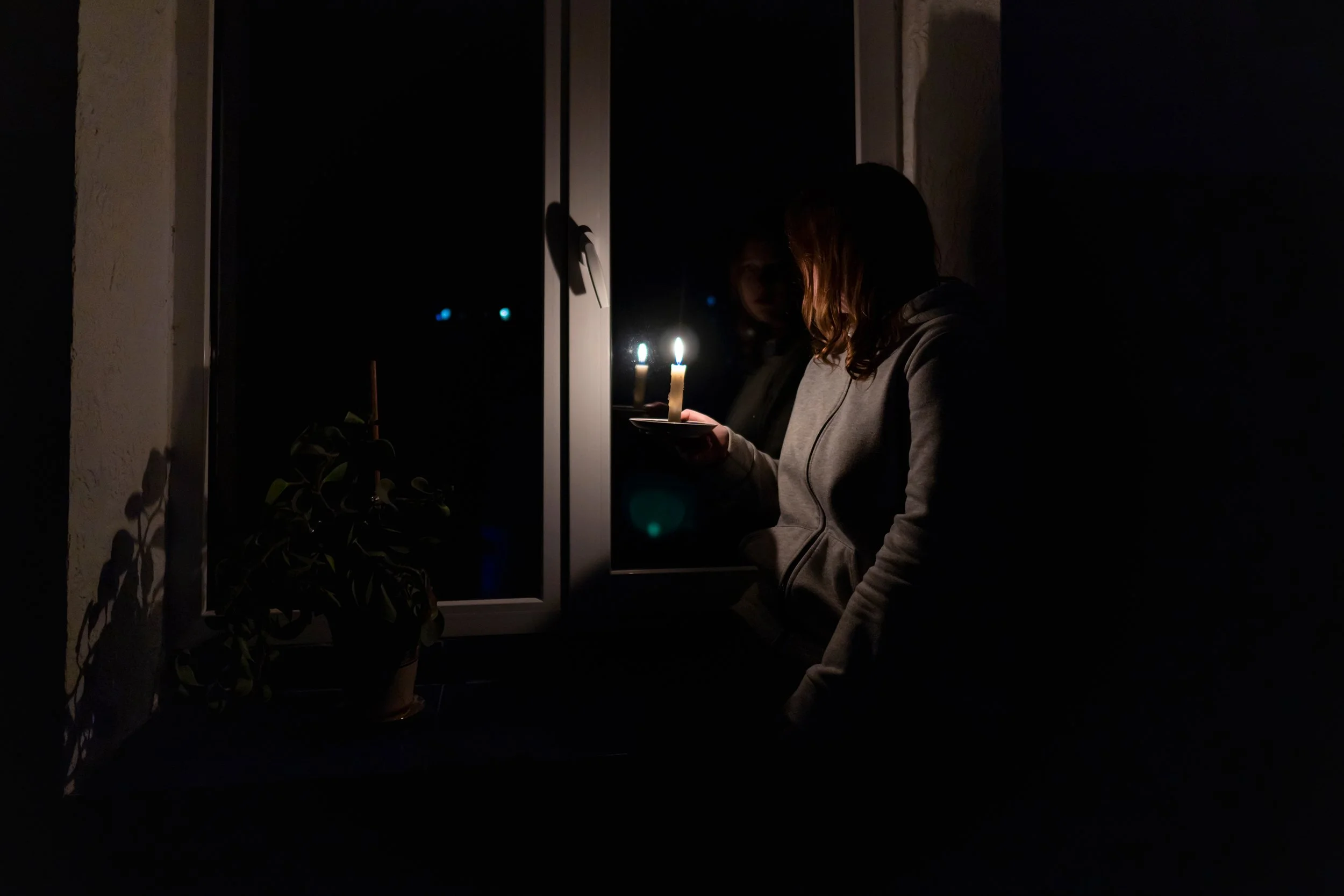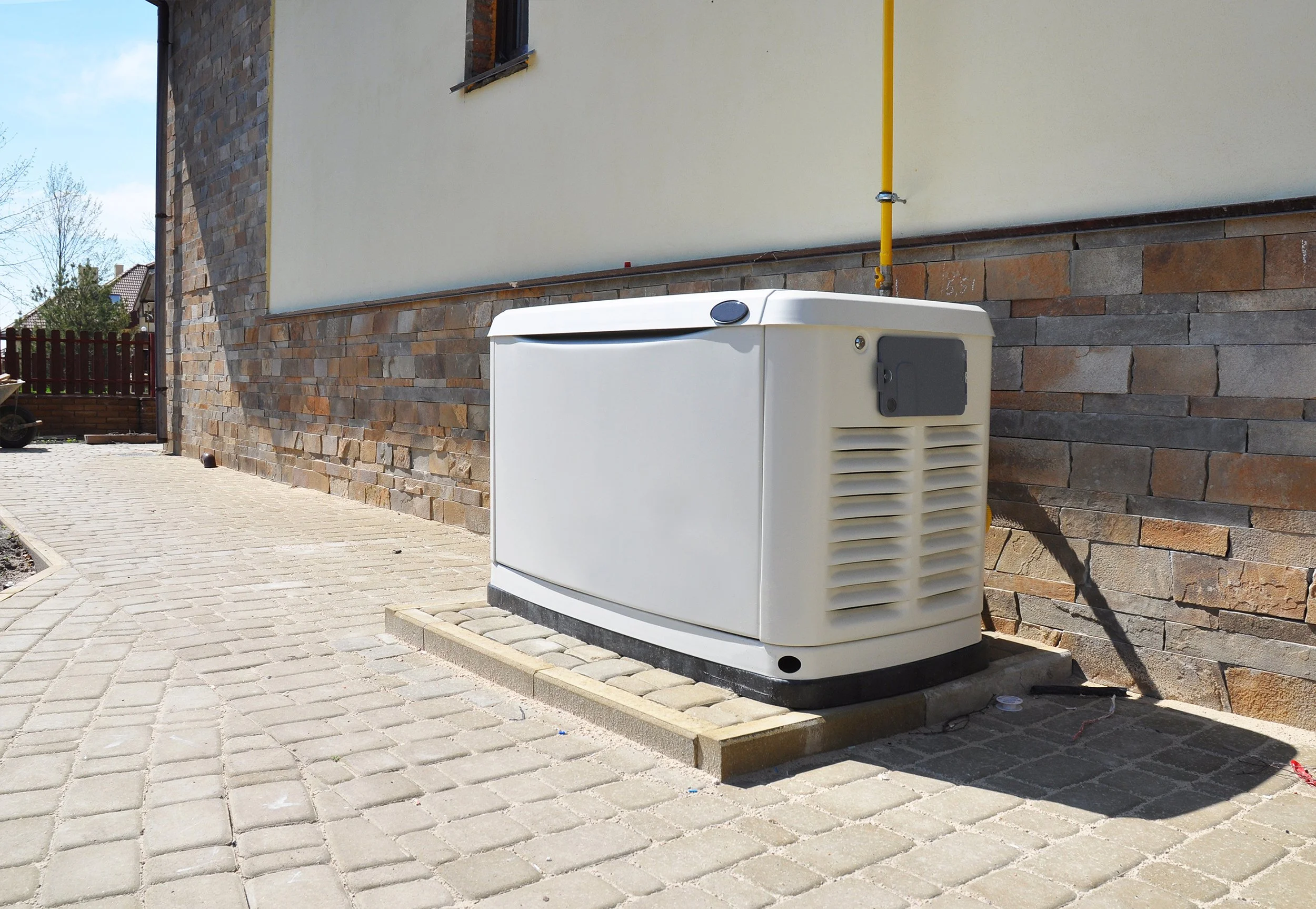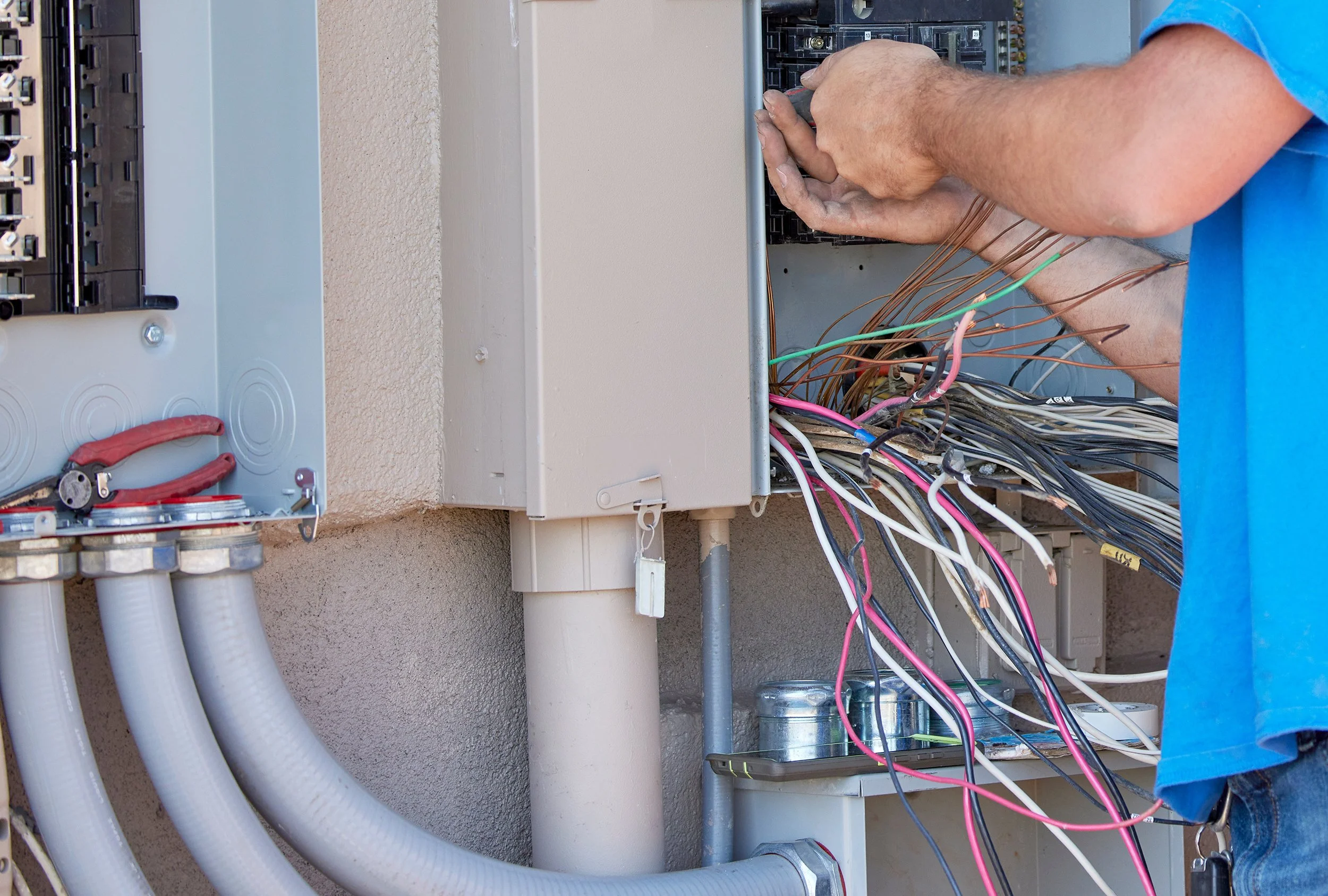Whole House Generator Cost: Installation, Maintenance, and Management

The lights went out at 8:47 PM on a Tuesday. Your neighbor's generator kicked on thirty seconds later, while you sat in the dark wondering how long your phone battery would last. As Boulder's latest windstorm raged outside, you realized that backup power wasn't just a luxury—it was becoming essential for modern life.
Whole house generators have evolved from luxury additions to practical necessities, especially in areas like Colorado where severe weather events and infrastructure challenges create frequent power outages. But understanding the true cost of generator ownership extends far beyond the initial purchase price.
Between installation complexities, ongoing maintenance requirements, and operational considerations, whole house generators represent a significant investment that requires careful planning and often professional management to ensure reliable performance when you need it most.
2025 Whole House Generator Pricing Overview
Generator Unit Costs by Capacity:
10-12 kW (Essential Systems)
Generac: $3,200-4,500
Kohler: $3,800-5,200
Briggs & Stratton: $2,800-4,000
Suitable for: Refrigeration, heating, lighting, essential outlets
16-20 kW (Most Homes)
Generac: $4,800-6,500
Kohler: $5,500-7,200
Briggs & Stratton: $4,200-5,800
Suitable for: Full home backup excluding large appliances like pool equipment
22-26 kW (Large Homes)
Generac: $6,200-8,500
Kohler: $7,000-9,200
Briggs & Stratton: $5,800-7,800
Suitable for: Complete home backup including multiple AC units, large appliances
30+ kW (Luxury/Commercial Applications)
Generac: $8,500-18,000+
Kohler: $9,500-18,000+
Briggs & Stratton: $7,500-13,000+
Suitable for: Large estates, commercial applications, complete backup with no limitations
Installation Cost Breakdown
Standard Installation Components:
Electrical Work ($2,500-4,500)
Transfer switch installation: $800-1,500
Electrical panel modifications: $500-1,200
Code compliance upgrades: $300-800
Electrical permits and inspections: $200-500
Labor (8-16 hours at $100-150/hour): $800-2,400
Gas Line Installation ($1,200-3,500)
Natural gas line extension: $15-25 per linear foot
Gas meter upgrade (if required): $500-1,200
Pressure testing and inspection: $200-400
Gas permits: $150-300
Professional installation labor: $600-1,200
Concrete Pad and Installation ($800-2,000)
Concrete pad (4'x8' typical): $400-800
Excavation and preparation: $200-500
Generator positioning and connection: $200-700
Total Installation Cost Range: $4,500-10,000
Factors Affecting Installation Costs:
Site Complexity
Distance from electrical panel: Each additional 50 feet adds $300-600
Distance from gas meter: Each additional 50 feet adds $400-800
Difficult terrain or landscaping: Additional $500-2,000
Permit complications or delays: Additional $200-800
Code Requirements
Boulder's high-altitude considerations: Additional $200-500
Noise ordinance compliance: Additional $300-800
Setback requirements affecting placement: Potential $500-1,500 relocations
Existing Infrastructure
Electrical panel upgrade requirements: $1,500-4,000 additional
Gas meter capacity upgrade: $800-2,500 additional
Utility coordination delays: Variable time and cost impacts
Ongoing Maintenance and Operating Costs
Annual Maintenance Requirements ($400-800)
Professional Service (Recommended Twice Yearly)
Spring startup service: $150-250
Fall winterization service: $150-250
Oil changes and filter replacements: $100-200
Battery testing and replacement: $50-150
System diagnostics and testing: $100-200
Monthly Operating Costs ($15-40)
Standby Mode Consumption
Natural gas usage (standby): $8-15 monthly
Electricity for control systems: $5-12 monthly
Weekly exercise cycle fuel: $2-8 monthly
Exercise Cycle Requirements
Most generators run automatically for 15-30 minutes weekly to maintain readiness, consuming fuel and creating wear that requires regular maintenance attention.
Fuel Costs During Operation
Natural Gas Consumption (Per Hour)
10-12 kW: $3-5 per hour at full load
16-20 kW: $5-8 per hour at full load
22-26 kW: $8-12 per hour at full load
30+ kW: $12-20+ per hour at full load
Typical Outage Scenarios:
4-hour outage (20kW generator): $20-32 fuel cost
24-hour outage (20kW generator): $120-192 fuel cost
Multi-day outage (72 hours): $360-576 fuel cost
Professional Management: The Hidden Necessity
Why Generator Management Matters
Whole house generators are sophisticated mechanical systems requiring regular attention to ensure reliable operation during emergencies. Many homeowners purchase generators expecting "set it and forget it" reliability, only to discover their system failed during the first real emergency due to neglected maintenance.
Common Maintenance Failures:
Dead batteries from lack of regular testing
Stale fuel causing engine problems
Clogged air filters reducing performance
Loose connections creating safety hazards
Software updates not installed
Professional Generator Management Services
Comprehensive Service Programs ($600-1,200 annually)
Scheduled Maintenance
Bi-annual professional service visits
Oil changes and filter replacements
Battery testing and replacement
System diagnostics and performance testing
Software updates and calibrations
Emergency Response
24/7 monitoring and alert systems
Emergency repair coordination
Fuel delivery during extended outages
System troubleshooting and problem resolution
Administrative Management
Warranty tracking and claim processing
Service record maintenance
Compliance monitoring for local regulations
Insurance coordination for coverage verification
The Management Value Proposition
Professional generator management typically costs $600-1,200 annually but prevents failures that could cost thousands in emergency repairs or compromise safety during outages.
Size Selection: Matching Capacity to Needs
Load Calculation Methodology
Essential Systems (10-12 kW sufficient)
Refrigerator: 1,500W
Furnace blower: 1,000W
Well pump: 1,500W
Lighting circuits: 1,000W
Essential outlets: 2,000W
Total: 7,000W with 30% safety margin = 10kW minimum
Whole House Backup (16-20 kW typical)
All essential systems: 7,000W
Central air conditioning: 5,000W
Electric water heater: 4,000W
Washer/dryer: 3,000W
Kitchen appliances: 3,000W
Total: 22,000W requiring 20kW+ capacity
Luxury Applications (22-30+ kW)
Complete house backup: 22,000W
Pool equipment: 3,000W
Workshop/garage: 2,000W
Electric vehicle charging: 7,500W
Hot tub: 6,000W
Total: 40,500W requiring 30kW+ capacity
Boulder-Specific Considerations
Altitude Effects
Generators lose approximately 3% power per 1,000 feet of elevation. At Boulder's 5,430-foot elevation, generators operate at roughly 84% of rated capacity, requiring 15-20% larger units than sea-level calculations suggest.
Climate Considerations
Extreme temperature operation requirements
Snow and ice protection needs
Wind resistance for exposed installations
Extended outage potential during severe weather events
Total Cost of Ownership Analysis
5-Year Ownership Costs (20kW System Example)
Initial Investment
Generator unit: $5,500
Installation: $6,500
Permits and fees: $400
Initial cost: $12,400
Annual Operating Costs
Professional maintenance: $600
Fuel (standby and exercise): $180
Insurance increase: $100
Annual costs: $880 x 5 years = $4,400
Usage Costs (Estimated)
Average 20 hours annual outage time
Fuel costs: $160 annually x 5 years = $800
Total 5-Year Cost: $17,600 Average annual cost: $3,520
Return on Investment Considerations
Emergency Prevention Value
Prevented frozen pipe damage: $5,000-15,000 potential savings
Food spoilage prevention: $200-500 per outage
Work-from-home continuity: Varies by profession
Medical equipment operation: Priceless for dependent individuals
Property Value Impact
Whole house generators typically add 3-5% to property values in areas with frequent outages, often exceeding installation costs for higher-end properties.
Installation Timeline and Process
Pre-Installation Phase (2-4 weeks)
Site evaluation and load calculation
Permit applications and approvals
Utility coordination for gas and electrical
Equipment ordering and delivery scheduling
Installation Phase (1-3 days)
Day 1: Concrete pad installation and curing
Day 2-3: Generator placement and connections
Electrical and gas connections
System testing and commissioning
Post-Installation Requirements
Utility inspections and approvals
System training and documentation
Warranty registration and setup
Maintenance schedule establishment
Financing and Incentive Options
Financing Programs
Manufacturer financing: 0-7.99% APR for qualified buyers
Home improvement loans: 5-12% APR depending on credit
HELOC options: Variable rates, tax advantages possible
Utility Incentives Some Colorado utilities offer rebates for backup generators that can provide grid support, though programs vary by location and utility provider.
Insurance Considerations
Many insurance policies offer discounts for whole house generators, particularly in areas prone to weather-related outages. Discounts typically range from 2-5% of annual premiums.
Frequently Asked Questions
Q: How long do whole house generators typically last?
A: With proper maintenance, quality generators last 15-25 years. However, components like batteries (3-4 years) and maintenance items require regular replacement throughout the system's life.
Q: Can I install a whole house generator myself?
A: While technically possible, generator installation requires electrical and gas work that typically requires licensed professionals. DIY installation often voids warranties and may violate local codes.
Q: How loud are whole house generators?
A: Modern generators operate at 58-65 decibels at 23 feet, comparable to normal conversation. However, Boulder has specific noise ordinances that may affect placement and operation times.
Q: What's the difference between air-cooled and liquid-cooled generators?
A: Air-cooled generators (most residential units under 22kW) are less expensive but have shorter lifespans. Liquid-cooled units cost more but run cooler, last longer, and operate more quietly.
Q: Should I choose natural gas or propane fuel?
A: Natural gas is more convenient with unlimited supply but requires utility connection. Propane requires tank refills but works anywhere and provides higher BTU output per cubic foot.
Making the Investment Decision
Generator Investment Justification Framework
Essential Considerations:
Frequency and duration of local power outages
Consequences of power loss for your household
Available budget for initial and ongoing costs
Property value and long-term ownership plans
Boulder-Specific Factors:
Increasing severe weather frequency
Aging electrical infrastructure in some areas
High property values supporting generator ROI
Outdoor recreation lifestyle requiring reliable home base
Professional vs. DIY Management Decision
The complexity of generator ownership—from proper sizing and installation to ongoing maintenance and emergency response—often justifies professional management for homeowners who:
Lack mechanical expertise or interest
Travel frequently and need remote monitoring
Want guaranteed reliability during emergencies
Prefer predictable annual costs vs. variable emergency expenses
Whole house generators represent significant upfront investments that pay dividends through peace of mind, emergency preparedness, and property value enhancement. The key to successful generator ownership lies in proper sizing, professional installation, and ongoing maintenance management.
For Boulder homeowners facing increasing weather-related outages and depending on electrical systems for heating, refrigeration, and work-from-home requirements, generators have evolved from luxury additions to practical necessities.
The total cost of generator ownership—including purchase, installation, maintenance, and management—typically ranges from $15,000-25,000 over five years for most residential applications. When weighed against the potential costs and inconvenience of extended power outages, this investment often provides compelling returns through emergency prevention and lifestyle continuity.
Professional management transforms generator ownership from a mechanical responsibility into a seamless backup power solution, ensuring your investment performs reliably when you need it most.
Why Boulder Homeowners Trust Willow for Generator Management Excellence
At Willow, we understand that your whole house generator represents a significant investment in your family's safety and comfort. We can help coordinate generator management services to ensure your backup power system performs flawlessly when you need it most, while eliminating the complexity and worry of DIY maintenance.
Complete Generator Installation Management
Pre-Purchase Consultation
Site evaluation and installation planning with Boulder's unique requirements in mind
Contractor vetting and coordination for installation project management
Permit assistance and utility coordination to streamline the installation process
Professional Installation Management and Contractor Coordination
Oversight Willow coordinates every aspect of your generator installation:
Project Management: Single point of contact for project management
Quality Control: Multi-point inspections ensure installation meets manufacturer and local code requirements
Timeline Optimization: Coordinated scheduling prevents delays and reduces installation time
Cost Management: Transparent pricing and change order management throughout the project
Ongoing Maintenance Excellence
Our generator maintenance program ensures reliable operation year after year:
Comprehensive system inspections, seasonal maintenance, and component testing
Emergency Response: Rapid repair coordination when issues arise
Performance Optimization: Regular system tuning to maintain peak efficiency and extend equipment life
Boulder-Specific Expertise
Our local knowledge prevents common generator problems in Colorado's challenging environment:
High-Altitude Adjustments: Proper system calibration for Boulder's 5,430-foot elevation
Weather Protection: Winterization and storm preparation specific to Front Range conditions
Code Compliance: Navigation of Boulder's noise ordinances and installation requirements
Investment Protection
Your generator represents a $15,000-30,000+ investment in your family's safety and comfort. Willow's professional management protects this investment while ensuring reliable performance when you need it most.
Getting Started
Ready to ensure your generator investment provides reliable backup power for years to come? Willow offers complimentary generator assessments to evaluate your current system and recommend the optimal management approach for your specific needs.
Contact Willow today to discover why discerning Boulder homeowners trust us with their critical backup power systems. Your peace of mind during the next outage depends on professional generator management.
Get Started with Whole House Generator Management Today
At Willow, we take a proactive approach to home care, ensuring your home remains in pristine condition year-round. From routine maintenance and seasonal upkeep to coordinating trusted vendors for repairs and upgrades, we handle it all with a high-touch, concierge-style experience tailored to your needs.
Let us take home management off your plate. Contact Willow today to learn how our services can help you protect, maintain, and enhance your home with ease.
Willow is a luxury home concierge service based in Boulder, Colorado. We care about your home and giving you back your time to do the things you care about most.
How it Works






